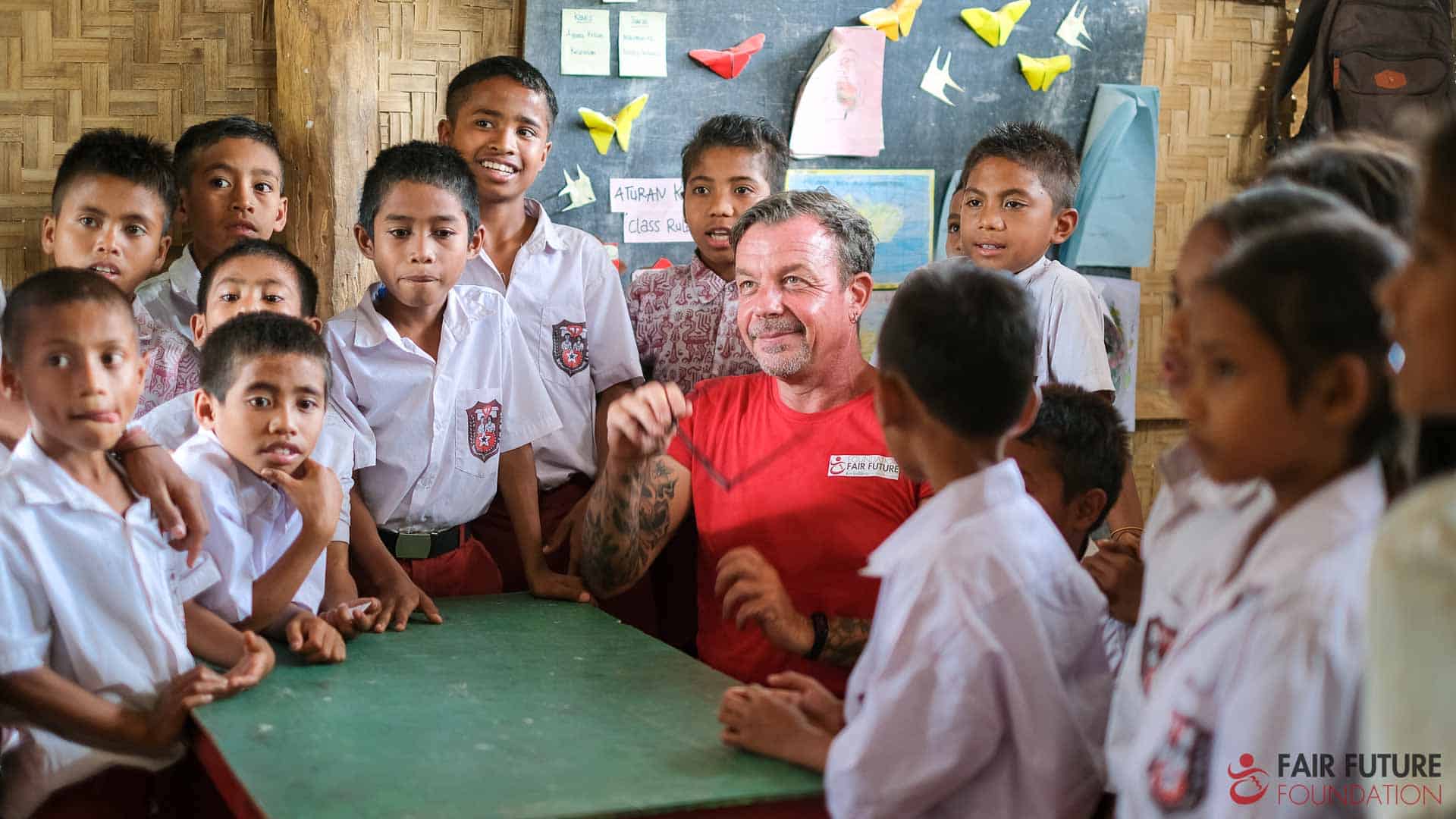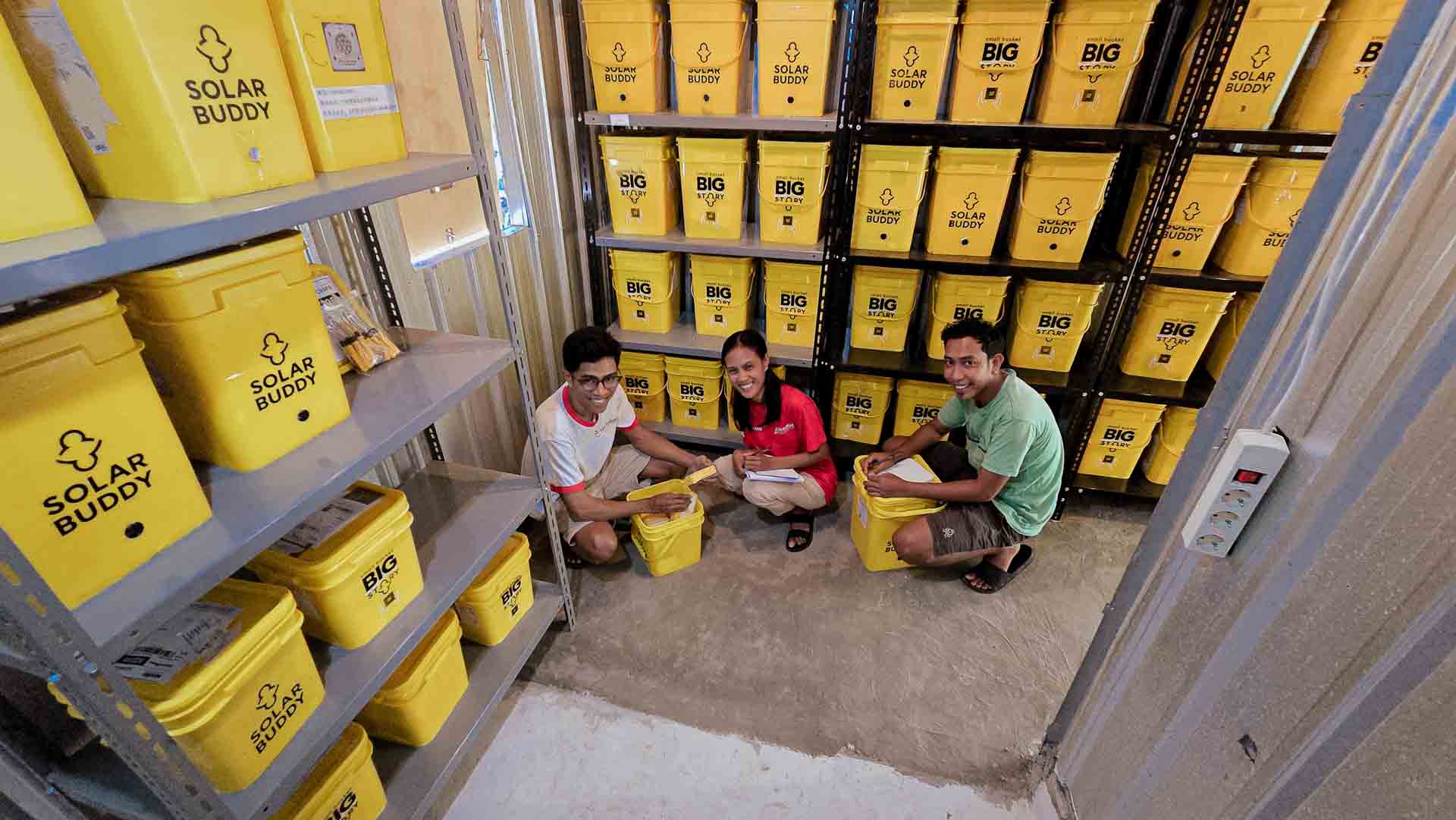Water is our most precious resource. We can’t live without it. But we are facing a global water crisis.
Water stress is a serious issue in many parts of the world. Discover its causes and effects, but most importantly the solutions to the water crisis.
One of the Foundation’s tasks is to ensure equitable access to water in quantity and quality, in order to prevent disease and sustain lives. This is to reduce environmental health risks by managing sanitation safely and with dignity. Still, the foundation seeks to involve women and men in the management of water resources, in sanitation by putting in place safe hygiene practices to maximize the benefits for their communities.
What is water scarcity?
Water scarcity, both natural and human-made, is the lack of sufficient available water resources to meet the demands in an area. Water is unevenly distributed in time and space. Much of it is wasted, polluted and managed unsustainably.
There is no global water shortage as such, but a number of places and regions are chronically short of water because its use globally has increased more than twice as fast as the population. over the last century.
A life without water in rural eastern Indonesia
Such a simple and basic question: How to survive?
A few facts about water access and children’s health
Reduce significant infant mortality, congenital problems, sometimes serious illnesses related to the consumption of unclean water.
Contaminated water and poor sanitation are linked to the transmission of diseases such as cholera, diarrhea, dysentery, hepatitis A, typhoid, and polio. Absent, inadequate, or inappropriately managed water and sanitation services expose individuals to preventable health risks..
Hunger, poverty and education
Besides dehydration due to the obvious lack of drinking water, hunger is one of the most serious effects of water scarcity. Why? Water shortages have a direct impact on crops and livestock, which can lead to food shortages and possibly starvation. Also, due to water shortages, some people cannot shower, wash their clothes, or clean their homes properly.
Here in East Sumba but also in many parts of the world, some children cannot go to school, either because they are too sick or because they have to walk a long way to reach a water source. Even when they can attend, many children cannot learn because of their fatigue, heavy responsibilities, and worries about their families.
Sanitation problems and diseases
Water scarcity generates sanitation problems by forcing people to drink unsafe water. Indeed, when water is scarce, people tend to store it at home, which increases the risk of domestic water contamination and creates breeding grounds for mosquitoes, which transmit dengue fever and malaria.
Lack of water causes other diseases such as trachoma (an eye infection that can cause blindness), plague and typhus.
Conflict prevention
Access to water has become a powerful global economic issue that could become one of the main causes of international tensions. Local conflicts – sometimes leading to wars – are triggered over scarce water resources. With global population growth and growing needs, these tensions could multiply in the future. It is by no means very common to witness neighborhood disputes over access to water here in the rural regions of eastern Indonesia. For a piece of rope, for example .. This rope that everyone brings to the well in order to draw water!
Awareness and education
Education is essential to solve the water crisis in these ultra-peripheral regions. This is the goal of the “Water Connections” program by Fair Future. Indeed, to face the future scarcity of water, it is necessary to teach all of these rural communities how to get out of this state of “water stress” and this, by creating innovative solutions: The goal is to have clean water in quantity and quality for a better life.
Reclaimed water
Rainwater harvesting and recycled wastewater also reduce scarcity and alleviate pressures on groundwater and other natural water bodies. Groundwater recharge, which allows water to move from surface water to groundwater, is a well-known process to prevent water scarcity.
Water just to wash your hands
The COVID-19 pandemic has proven to us, on the ground, the crucial importance of sanitation, hygiene and adequate access to drinking water to prevent and contain diseases, all diseases! Hand hygiene saves lives.
Handwashing is one of the most effective measures you can take to reduce the spread of pathogens and prevent infections, including the COVID-19 virus.
Yet here, almost all families, but also billions of people in the world, still do not have access to drinking water and funding is woefully insufficient.
Your comment and feedback is invaluable
…to all of us here who are working in the field. You have a role to play, you can bring us your knowledge, it will be greatly appreciated. Thank you so much for your words and your benevolence.






